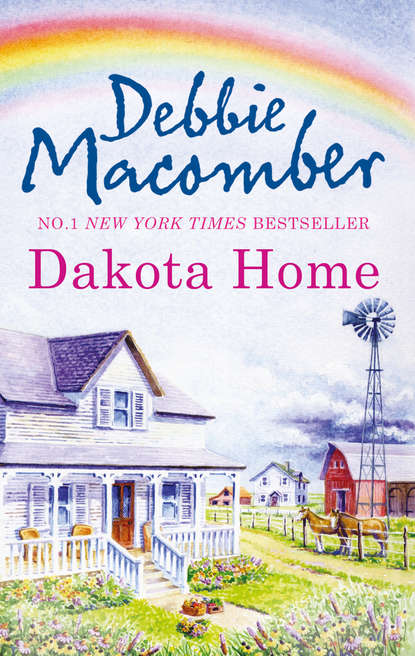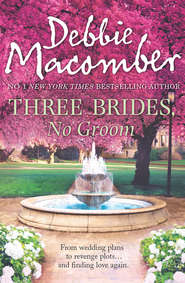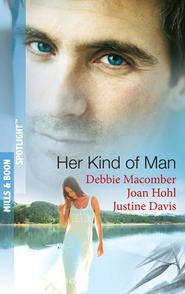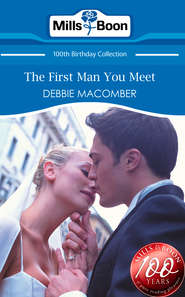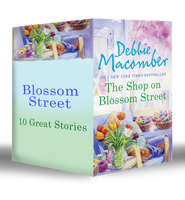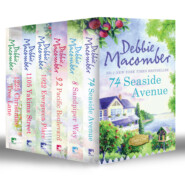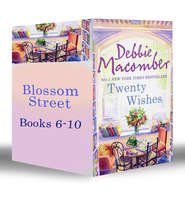По всем вопросам обращайтесь на: info@litportal.ru
(©) 2003-2024.
✖
Dakota Home
Автор
Год написания книги
2019
Настройки чтения
Размер шрифта
Высота строк
Поля
Jeb watched Sarah reach for Dennis’s forearm and his friend stopped midsentence.
“He doesn’t know,” his father said.
“Know what?” Jeb asked, frowning at those gathered by his bedside.
Then suddenly he did know, should have realized the moment he’d heard his sister’s sobs and seen the agony in his father’s eyes.
That was when he started to scream. The scream began in the pit of his stomach and worked its way through him until he sounded like a man possessed. He screamed until he had no oxygen left in his lungs, until his shoulders shook and his breath was shallow and panting.
He already knew what no one had the courage to tell him.
One
It was the screaming that woke him.
Jeb bolted upright in bed and forced himself to look around the darkened room, to recognize familiar details. Four years had passed since the accident. Four years in which his mind refused to release even one small detail of that fateful afternoon.
Leaning against his headboard, he dragged in deep gulps of air until the shaking subsided. Invariably with the dream came the pain, the pain in his leg. The remembered agony of that summer’s day.
His mind refused to forget and so did his body. As he waited for his hammering pulse to return to normal, pains hot through his badly scarred thigh, cramping his calf muscle. Instinctively cringing, he stiffened until the discomfort passed.
Then he started to laugh. Sitting on the edge of his bed, Jeb reached for his prosthesis and strapped it onto the stump of his left leg. This was the joke: The pain Jeb experienced, the charley horse that knotted and twisted his muscles, was in a leg that had been amputated four years earlier.
He’d cheated death that day, but death had gained its own revenge. The doctors had a phrase for it. They called it phantom pain, and assured him that eventually it would pass. It was all part of his emotional adjustment to the loss of a limb. Or so they said, over and over, only Jeb had given up listening a long time ago.
After he’d dressed, he made his way into the kitchen, eager to get some caffeine into his system and dispel the lingering effects of the dream. Then he remembered he was out of coffee.
It didn’t take a genius to realize that Sarah had purposely forgotten coffee when she’d delivered his supplies. This was his sister’s less-than-subtle effort to make him go into town. It wouldn’t work. He wasn’t going to let her manipulate him—even if it meant roasting barley and brewing that.
Jeb slammed out the back door and headed for the barn, his limp more pronounced with his anger. His last trip into Buffalo Valley had been at Christmas, almost ten months earlier. Sarah knew how he felt about people staring at him, whispering behind his back as if he wasn’t supposed to know what they were talking about. He’d lost his leg, not his hearing or his intelligence. Their pity was as unwelcome as their curiosity.
Jeb hadn’t been particularly sociable before the accident and was less so now. Sarah knew that, too. She was also aware that his least favorite person in Buffalo Valley was Marta Hansen, the grocer’s wife. The old biddy treated him like a charity case, a poor, pathetic cripple—as if it was her duty, now that his mother was gone, to smother him with sympathy. Her condescending manner offended him and hurt his already wounded pride.
Jeb knew he made people uncomfortable. His loss reminded other farmers of their own vulnerability. With few exceptions, namely Dennis, the men he’d once considered friends felt awkward and uneasy around him. Even more now that he’d given up farming and taken up raising bison. For the past three and a half years he’d maintained a herd of fifty breeding animals. He’d learned mostly by trial and error, but felt he’d made considerable progress.
Genesis, his gelding, walked to the corral fence and stretched his head over the rail to remind Jeb he hadn’t been fed yet.
“I haven’t had my coffee,” he told the quarter horse, as if the animal could commiserate with him. He hardly ever rode anymore, but kept the horse for company.
He fed the gelding, then returned to the kitchen.
Cursing his sister and her obstinate ways, he wrote a grocery list—if he was going into town he’d make it worth his while—and hurried toward his pickup. The October wind felt almost hot in his face. A few minutes later, he drove out of the yard, sparing a glance for the bison grazing stolidly on either side. He moved the herd on a pasture rotation system. Later in the day he’d separate the weanlings and feeders from the main herd.
Buffalo ranching. He’d made the right decision. They were hardy animals, requiring less care than cattle did. The demand for their meat was growing and often exceeded supply. Business was good. Currently his females were worth more as breeding stock than meat: just last week, Jeb had sold one of his cows for a healthy five thousand dollars.
To his surprise, he enjoyed the fifty-minute drive to Buffalo Valley, although he rarely ventured into town these days. Usually he preferred to drive with no real destination, enjoying the solitude and the changing seasons and the feel of the road.
When he pulled into town, he was immediately struck by the changes the past ten months had brought to Buffalo Valley. Knight’s Pharmacy was and always had been the brightest spot on Main Street. Hassie Knight had been around as long as he could remember and served the world’s best old-fashioned ice-cream sodas. He’d loved that place as a kid and had considered it a special treat when his mother took him there on Saturday afternoons.
Like Marta Hansen, Hassie Knight had been a friend of his mother’s; she was also the one woman he knew, other than Sarah, who didn’t make him feel like a cripple.
3 OF A KIND, the town’s only hotel, bar and grill, was down the street from the pharmacy. Jeb had briefly met Buffalo Bob a couple of years earlier. He never did understand why a leather-clad, tattooed biker with a ponytail would settle in Buffalo Valley, but it wasn’t up to him to question. Bob had lasted longer than Jeb had thought he would. People seemed to like him, or so Calla, Jeb’s niece, had informed him.
The Pizza Parlor was new, but now that he thought about it, he remembered Sarah telling him Calla had started working there part-time. Good thing—the kid needed an outlet. She was fifteen and full of attitude. Jeb suspected that Dennis and his sister would have been married by now if it wasn’t for Calla.
Sarah’s quilting store came into view next and despite his irritation with her, he couldn’t squelch his sense of pride. Her quilts were exquisite, crafted from muslin colored with various natural dyes that Sarah derived from plants, berries and lichen. She managed to make something complex and beautiful out of this hand-dyed muslin, combining traditional methods with her own designs. The store was a testament to her talent and skill. She took justifiable pride in her work, displaying quilts in the front window of what had once been a florist shop. The Spring Bouquet had been closed for at least fifteen years. Folks didn’t buy a luxury like hothouse flowers when it was hard enough just getting food on the table. Nor had there been much to celebrate in Buffalo Valley for a long time.
Still, the town showed more life than it had in years. The old Buffalo Valley theater appeared to be in operation; he recalled his father saying something about a school play being held there last Christmas. He didn’t realize the theater had reopened permanently, but he supposed it made sense, since the place had been completely refurbished.
The theater wasn’t his only surprise. The outside of Hansen’s Grocery had recently been painted, as well. God knew it could use a face-lift. The sign was down and propped against the building; it was probably worn out, like so much else in town.
Not delaying the unpleasant task any longer, Jeb parked and headed toward the grocery, determined to be as cold and aloof as possible until Marta Hansen got the message. If past experience was anything to go by, that could take a while.
“Hello.”
He wasn’t two steps into the grocery when a friendly voice called out to greet him. His reply was more grunt than words. Without stopping, he reached for a cart and started down the first aisle.
“I don’t believe we’ve met,” the woman said, following him.
Jeb turned. He didn’t want to be rude, but he did want to get his point across. Leave me alone. He wasn’t interested in exchanging gossip, didn’t require assistance or company. He’d come for coffee and a few other groceries and that was it.
Confronting the woman with the friendly voice, Jeb got the shock of his life. She was young and blond and beautiful. Really beautiful. He couldn’t begin to imagine what had brought a beauty like this to a town like Buffalo Valley. The next thing he noticed was how tall she was—just a couple of inches shorter than his own six feet. Her blue eyes held kindness and her smile was warm.
“I’m Maddy Washburn,” she said, holding out her hand.
Jeb stared at it a second before he extended his own. “Jeb McKenna,” he said gruffly, certain he was making an ass of himself by gawking at her. Hell, he couldn’t seem to stop.
“So you’re Jeb,” she returned, sounding genuinely pleased to make his acquaintance. “I wondered when I’d have a chance to meet you. Sarah and Calla talk about you all the time.”
He nodded and turned back to his cart. It was adding up now, why his sister had “forgotten” to include coffee in his monthly supplies.
“I own Hansen’s Grocery,” she said.
“You do?” Afraid his staring was noticeable, he placed two large tins of ground coffee in his cart.
“What do you think of the new paint job?”
“Looks nice,” he said, and pointedly checked his list as he pushed his cart down the aisle. He added a ten-pound bag of sugar.
“I thought so, too.”
She was in front of him now, straightening rows of powdered creamer.
“Wait a minute. You bought the grocery?” The fact that she owned the store hadn’t really hit him earlier. “Why?” It made no sense that someone with so much obvious potential and such a great body—call him sexist, but it wasn’t like he could ignore the curves on this woman—would purchase a grocery in a back-country town on the Dakota plains.
She laughed. “Everyone asks me that.”
He’d bet they did.





